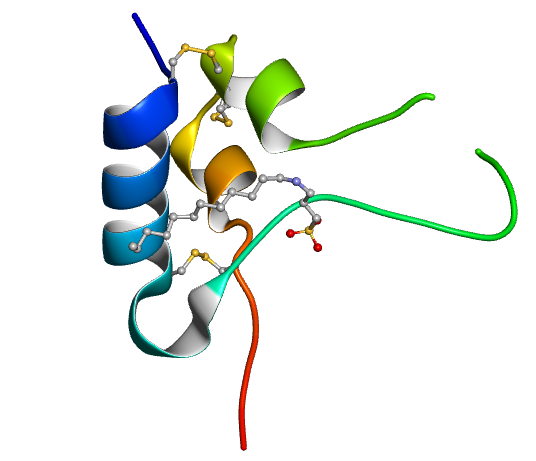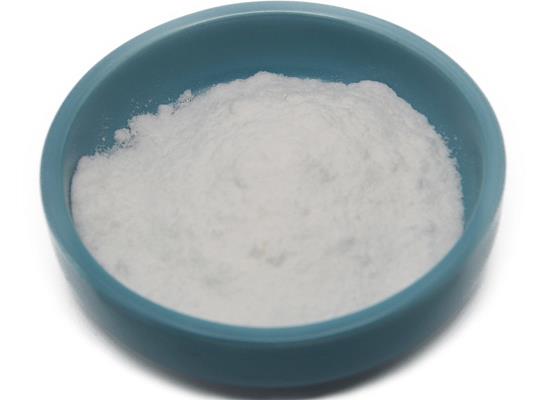Function of Human IGF-I
Jun 12,2024
Insulin-like growth factor I (IGF1) is a group of growth hormones. IGF-I is involved in several processes, including positive regulation of cell population proliferation, positive regulation of signal transduction, and regulation of macromolecular biosynthetic processes. Acts upstream of or within cellular activation. Located in the extracellular space. Part of the alphav-beta3 integrin-IGF-1-IGF1R complex and the insulin-like growth factor ternary complex. Associated with a variety of diseases, including acne, cerebral ischaemia, diabetes, myopia and neurodegenerative diseases. IGF-I is also a biomarker for a variety of diseases, including vitiligo, arterial disease, autoimmune disease, bone disease, and eye disease.

The IGF-I gene encodes a protein that is functionally and structurally similar to insulin and is a member of a family of proteins involved in mediating growth and development. The encoded protein is processed from a precursor that binds to a specific receptor and is secreted. Defects in this gene result in insulin-like growth factor I deficiency. Alternative splicing generates multiple transcript variants encoding different isoforms that may undergo similar processing to generate the mature protein.
It is involved in various aspects of cell proliferation, differentiation, signal transduction and biosynthesis. IGF1 isolated from plasma is structurally and functionally related to insulin but has higher growth-promoting activity. May be a physiological regulator of [1-14C]-2-deoxy-D-glucose (2DG) transport and glycogen synthesis in osteoblasts. It stimulates glucose transport in bone-derived osteoblasts (PyMS) and is effective at much lower concentrations than insulin, promoting not only glycogen and DNA synthesis but also glucose uptake.
Ca2+-dependent exocytosis of IGF1 is required for sensory perception of smell in the olfactory bulb (By similarity). Acts as a ligand for IGF1R. Binds to the alpha subunit of IGF1R and activates its intrinsic tyrosine kinase activity, causing autophosphorylation of tyrosine residues in the beta subunit, which initiates a cascade of downstream signalling events that activate the PI3K-AKT/PKB and Ras-MAPK pathways. Binds to the integrins ITGAV:ITGB3 and ITGA6:ITGB4. Its binding to integrins and subsequent formation of ternary complexes with integrins and IGFR1 is essential for IGF1 signalling. Induces phosphorylation and activation of IGFR1, MAPK3/ERK1, MAPK1/ERK2 and AKT1. IGF-I acts as a negative regulator of cardiomyocyte apoptosis as part of the MAPK/ERK signalling pathway by promoting STUB1/CHIP-mediated ubiquitination and degradation of the ICER-type isoform of CREM (similar).
- Related articles
- Related Qustion
Supplementation with pyridoxal 5'-phosphate monohydrate can synthesize neurotransmitters such as dopamine and serotonin, maintaining a healthy nervous system.....
Nov 4,2025Biochemical EngineeringExtraction enhances Beta-Sitosterol bioavailability. Pharmacokinetic studies show therapeutic potential, necessitating dietary intake for health benefits, requiring further research.....
Jun 12,2024APIHuman IGF-I
67763-96-6You may like
Human IGF-I manufacturers
- HUMAN IGF-I
-

- 2025-12-23
- CAS:67763-96-6
- Min. Order:
- Purity: 0.99
- Supply Ability:
- IGF-DES
-

- $0.00 / 1box
- 2025-12-23
- CAS:67763-96-6
- Min. Order: 1box
- Purity: 0.99
- Supply Ability: 10tons
- IGF-DES
-

- $20.00 / 1box
- 2025-12-19
- CAS:67763-96-6
- Min. Order: 1box
- Purity: 99
- Supply Ability: in stock






